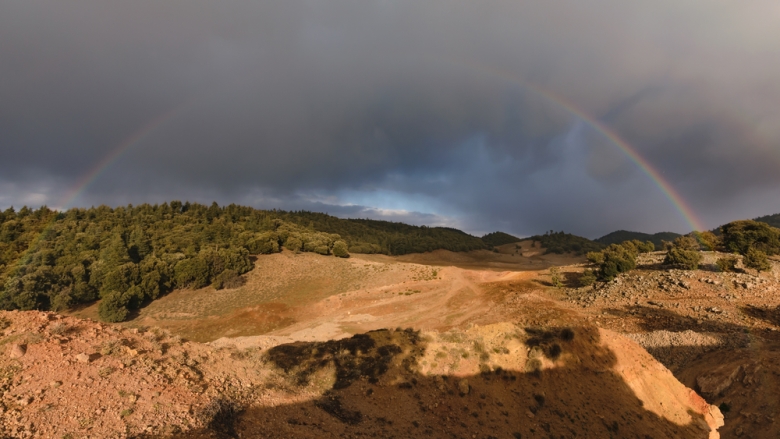Morocco knows it will be affected by climate change, it’s just a question of how badly. It is already feeling the effects: The rate of economic growth fell to 1.5% this year because of a severe drought in 2015. If just one season of poor rain can depress Morocco’s economy by causing bad harvests, what sort of havoc will the greater extremes of climate change wreak as the planet gets hotter?
“Morocco launched the Plan Vert, or green strategy, to cope with the threat of climate change,” said Marie Francoise Marie-Nelly, World Bank Group Country Director for the Maghreb. “It represents a triple win, as it involves both adapting the country to the reality of climate change and taking steps to reduce its impact on its people and environment, all while creating opportunities such as helping farmers adopt climate-smart techniques and increase their productivity, and provide better links to markets for their goods.”
Conserving the water stored naturally in underground aquifers is a case in point. New policies protect this precious natural resource, while making sure there is enough water to go around to meet the needs of agriculture; an industry that is a critical source of employment. According to World Bank Program Leader, Andrea Liverani, Moroccans have long recognized the importance of regulating the amount of water people pump from underground.
But better technology has made this worse. “Now that a pump can go 200 meters down and not just 40, it’s more serious, as this depletes the aquifers,” said Liverani. Stricter regulations are needed to stop it. At the same time, the irrigation network has been improved to make more efficient use of water, with the introduction of modern techniques such as drip irrigation, and to provide farmers with more reliable access to water. The Plan Vert also includes proactive measures to encourage farmers to grow tree crops instead of cereals. The roots of trees help conserve soil by holding it together. The strategy also encourages “direct seeding,” an environmentally friendly method of planting seed directly into the ground without tilling it first, which risks losing the nutrients contained in topsoil.
Liverani said that green policies like this can mean good business, attracting the private sector.
Here are five things Morocco is doing to reap the triple benefits of adapting to climate change, lessening its impact and creating new opportunities:
- Morocco aims to generate 52% of its electricity needs from renewable energy by 2030, and is stimulating local manufacturing with a target of sourcing 35% of the second phase of the NOOR concentrated solar plant from local producers.
- Morocco has lifted all subsidies on diesel, gasoline and heavy fuel oil to encourage more efficient use of energy and to free up resources to invest in the transition to a green economy.
- The Plan Maroc Vert aims to protect the environment as well as the livelihoods of Moroccans. Agriculture accounts for only 15% of its Gross Domestic Product, but farming still employs 40% of its workforce.
- Morocco has begun treating its ocean as a natural resource with the same importance as the land, with improved coastal zone management and the development of sustainable aquaculture. Fishing makes up 56% of the country’s agricultural exports.
- Morocco is making an effort to conserve its underground aquifers, a natural source of fresh water that, if left clean and undisturbed, replenishes itself. It’s a win for the environment and for current and future generations of Moroccans.

